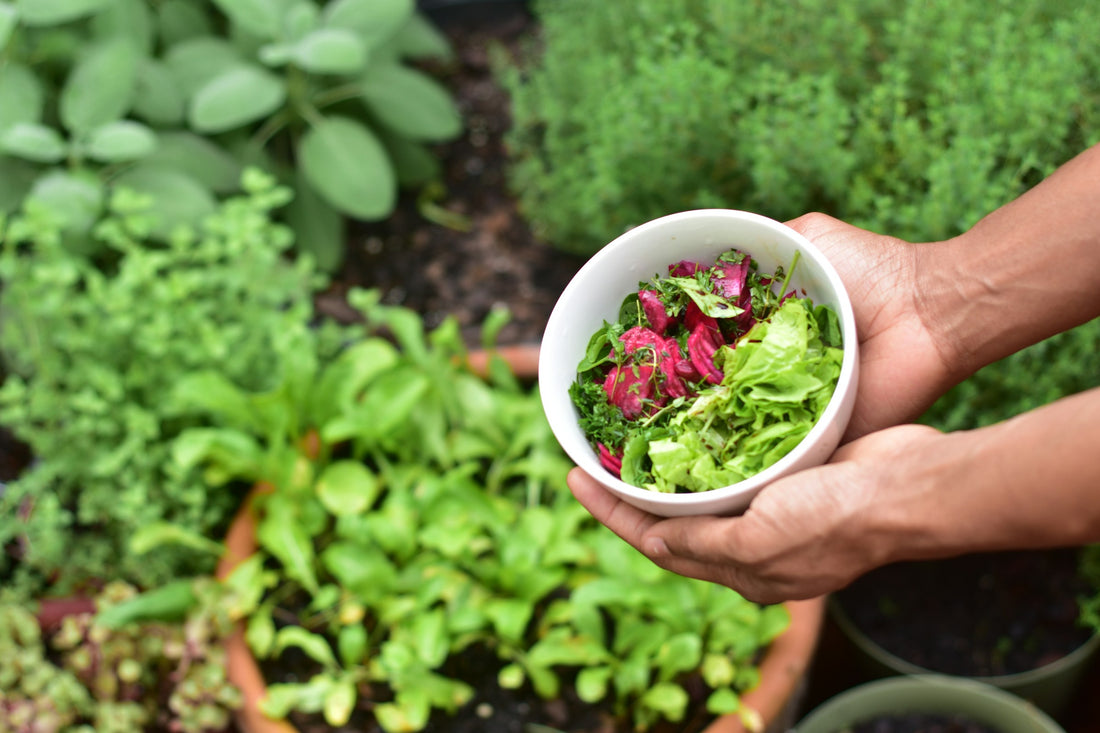For decades, gardening has been all about synthetic chemicals and industrialized agriculture. Organic gardening has emerged as a beacon of hope for those seeking a more sustainable and eco-friendly approach to growing their own food. But, does it make a difference and is it worth moving away from chemical solutions to organic gardening methods?
What Is Organic Gardening?
At its core, organic gardening is a holistic approach that prioritizes the health and well-being of the entire ecosystem. Unlike conventional gardening methods that rely on synthetic fertilizers, pesticides, and herbicides, organic gardening emphasizes the use of natural and environmentally-friendly techniques to nurture the soil, support plant growth, and foster biodiversity.
Organic gardeners recognize that healthy soil is the cornerstone of a thriving garden. By focusing on building and maintaining fertile, well-aerated soil through practices such as composting, mulching, and crop rotation, they ensure that their plants receive the essential nutrients they need to thrive. Compost, a nutrient-rich blend of decomposed organic matter, plays a crucial role in replenishing the soil and enhancing its ability to retain moisture and support beneficial microbial activity.
Organic gardeners place a strong emphasis on fostering biodiversity and employing natural pest management strategies. Instead of relying on harmful chemical pesticides, they utilize techniques like companion planting, crop rotation, and biological controls to manage known pests and diseases. This approach not only protects the plants but also safeguards the delicate balance of the ecosystem, ensuring that beneficial insects and other organisms can thrive.
Organic gardening prioritizes the use of natural, plant-based inputs and amendments, such as organic fertilizers, manure, and bone meal. These organic sources provide plants with essential nutrients while enriching the soil and promoting long-term fertility. By avoiding synthetic chemicals, organic gardeners can cultivate healthy, vibrant gardens while minimizing their impact on the environment.
The Benefits of Organic Gardening
The advantages of organic gardening practices extend far beyond the garden itself, touching various aspects of our lives and the environment.
Numerous studies have shown that organically grown produce contains higher levels of essential vitamins, minerals, and antioxidants compared to conventionally grown counterparts. This is largely due to the nutrient-rich soil that organic gardeners diligently build and maintain, which provides plants with the building blocks they need to thrive.
By avoiding synthetic pesticides and fertilizers, organic gardeners play a crucial role in reducing the environmental impact of conventional agriculture. They help mitigate soil depletion, water pollution, and the loss of biodiversity, all while promoting a healthier, more sustainable ecosystem.
Organic gardening offers significant health benefits by reducing exposure to harmful chemicals. Eliminating the use of synthetic pesticides and herbicides not only protects the gardener but also ensures that the food produced is free from toxic residues, providing a safer and more nourishing option for families.
While the initial cost of organic gardening supplies may be slightly higher, the long-term savings can be substantial. By improving soil health and reducing the need for costly inputs, organic gardeners can enjoy higher yields, reduced maintenance costs, and the added benefit of growing their own nutrient-dense produce.
Moving To An Organic Gardening Lifestyle
For those new to organic gardening, it's often best to start with small, manageable steps. Begin by incorporating a few organic practices, such as composting or using organic pest control methods, and gradually expand your knowledge and implementation over time. Remember, every step towards a more sustainable garden is a step in the right direction.
Organic gardening may come with its fair share of challenges, from managing pests to dealing with peer pressure. However, with patience, persistence, and a willingness to learn, these obstacles can be overcome. Seek out resources, join gardening communities, and embrace the journey, knowing that the long-term benefits of organic gardening far outweigh the initial hurdles.
Organic gardening is a process of continuous learning and growth. Celebrate each small victory, whether it's a bountiful harvest, the appearance of beneficial insects, or the lush, vibrant foliage of your plants. These moments of success will fuel your passion and inspire you to continue on the path of sustainable, eco-friendly gardening.



